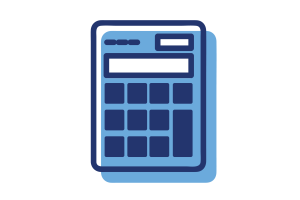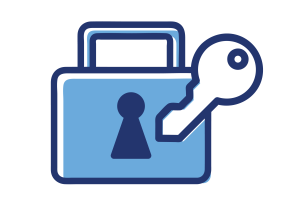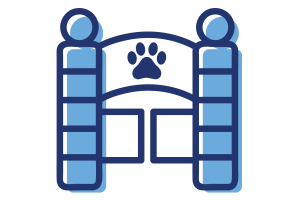Intro to Python is a college-level pre-college course where your curiosity meets coding. Earn one college credit from Johns Hopkins University—ranked No. 7 among national universities and No. 13 in undergraduate engineering by U.S. News & World Report.
Designed by Johns Hopkins instructors and industry experts, this six-week online course introduces programming fundamentals through real-world applications. With guidance from your exceptional instructor, you’ll build coding skills as you learn to write and debug code, analyze data, and design interactive simulations.
Along the way, you’ll discover how math and logic fuel new ways to solve problems, strengthen your critical thinking, boost your college applications, and build confidence as a future engineer.
Course Content and Projects
More than just a coding class, Intro to Python is your chance to think like a programmer. In just six weeks, you’ll move from no experience to creating real projects in Python—one of today’s most in-demand programming languages, used by innovators at Google, NASA, and TikTok.
Whether you’re new to coding or eager to level up your problem-solving skills, you’ll bring programming concepts to life through guided lessons, hands-on coding projects, and personalized support. Here are a few of the hands-on projects you’ll take on.
Take-Home Pay Calculator
Curious what your summer job paycheck will really look like? Code a tool that shows how much you’ll actually bring home after taxes and savings.
Secret Code Breaker
Step into the world of secret agents and use Python to crack a classic cipher—the once-unbreakable Vigenère Cipher.
Virtual Zoo Simulator
Create your own interactive zoo where animals eat, move, and come to life through your code.
Want a closer look? You can review past syllabi for detailed information about what is covered in the course, objectives, schedule, labs, grading deliverables, and more.
Program Format
Intro to Python is offered every fall, spring, and summer. With two shorter sessions offered each term, you’ll choose the one that best fits your schedule. Because it’s asynchronous, you’ll have the flexibility to learn on your terms, whether that’s after school, on weekends, or from anywhere in the world.
Online Asynchronous: Flexible learning with real support
Intro to Python is designed for independent learners who want the right balance of freedom and guidance. You’ll watch pre-recorded lectures on your own schedule, then put concepts into practice through practice problems, assignments, and weekly quizzes. Regular deadlines keep you on track, while optional study sessions and timely feedback from expert instructors give you the support you need to succeed.
By the end of the course, you’ll have built a solid foundation in Python and the confidence to apply your skills in future academic or professional settings.
Year-round: Achieve your goals, on your schedule
Whether you’re balancing a busy school year or diving in over the summer, Intro to Python is designed to fit into your daily life. The primarily asynchronous format gives you the freedom to set your own rhythm, while clear deadlines and structured support help you stay focused and achieve your goals.

| term & Session | dates | location & Class Times |
|---|---|---|
| Fall Session 1 | August 25 to October 5, 2025 (6 weeks) | Online · Asynchronous with deadlines · Optional study sessions 2x/week |
| Fall Session 2 | October 27 to December 8, 2025 (6 weeks) | Online · Asynchronous with deadlines · Optional study sessions 2x/week |
| Spring Session 1 | January 20 to March 1, 2026 (6 weeks) | Online · Asynchronous with deadlines · Optional study sessions 2x/week |
| Spring Session 2 | March 23 to May 3, 2026 (6 weeks) | Online · Asynchronous with deadlines · Optional study sessions 2x/week |
| Summer Session 1 | May 18 to June 28, 2026 (6 weeks) | Online · Asynchronous with deadlines · Optional study sessions 2x/week |
| Summer Session 2 | June 29 to August 10, 2026 (6 weeks) | Online · Asynchronous with deadlines · Optional study sessions 2x/week |
Eligibility
Intro to Python carries the expectations of a Johns Hopkins college course, so you’ll need to meet specific requirements before you apply.
Academic Prerequisites
- As and Bs in your high school math and science classes
- Completed Algebra II
Grade and age requirements
For Intro to Python, you must be a current high school student who has completed at least 9th grade or recent high school graduate.
What to Expect Day to Day
Here’s how the course is structured, how much time you’ll spend on projects, and what you’ll need to get started.
Course Modality, Structure, and Expectations
This course is not self-paced. Intro to Python is primarily asynchronous, allowing you to manage your time flexibly; however, you will need to meet weekly deadlines for assignments, projects, and quizzes.
- Lectures and Quizzes: Pre-recorded lectures are available anytime, so you can learn when it works best for you. Expect to spend about 1 hour each week watching lectures and another 30 minutes preparing for and completing a short online quiz.
- Practice Problems: Each week, you’ll spend about 3 hours and 15 minutes working through guided examples and practice problems that reinforce lecture concepts. These activities help you build confidence step by step.
- Programming Assignments: Plan for about 2 hours and 45 minutes each week applying what you’ve learned to hands-on coding projects. These assignments are where you’ll put your skills into action and see your progress come to life.
- Study Sessions: Optional study sessions are offered two times a week. These real-time meetings give you the chance to ask questions, connect with peers, and get direct guidance from your instructor or TA.
- Collaboration: You’ll also interact with classmates and instructors on Canvas. Posting questions and sharing ideas in the discussion forum is encouraged, and you can expect responses from your instructor and TAs within 24 hours.
Engineering Innovation courses are designed to mirror college-level work. As a result, you may find the course expectations to be an adjustment if you’re used to high school coursework. You’re encouraged to use the support resources available to you and to reach out to your instructor or advisor whenever you need help.
Time Commitment
You’ll be engaging with a college-level course in a manageable format. On average, plan to dedicate about 7.5 hours per week across lectures, quizzes, practice, and projects.
How Your Time Breaks Down
Lectures & Quizzes: 1.5 hours/week
Practice Problems: 3.25 hours/week
Programming Assignments: 2.75 hours/week
Optional Study Sessions: 2.75 hours/week
Computer and Platform Requirements
Computer Requirements
To participate in the course, you’ll need a computer with a reliable internet connection that can access course materials on the Canvas learning management system.
Browser
We recommend the latest version of Google Chrome or Mozilla Firefox. For the smoothest experience, please enable third-party cookies in your browser.
Coding Platform
All coding assignments will be completed in Replit, a web-based Integrated Development Environment (IDE) that runs entirely in your browser. No installation is required. Replit offers a free plan, though some features may require a paid subscription. As of August 2025, the monthly plan is $25 (see Replit pricing for current rates).
“I knew that I wanted to be in the engineering world, but I wanted to 1) learn more about it and 2) zoom in on which aspect of engineering I wanted to focus on. ”
 Carly
An Engineering Innovation Alum
Carly
An Engineering Innovation Alum
JOIN US!
Learn about each program or start your application today.



